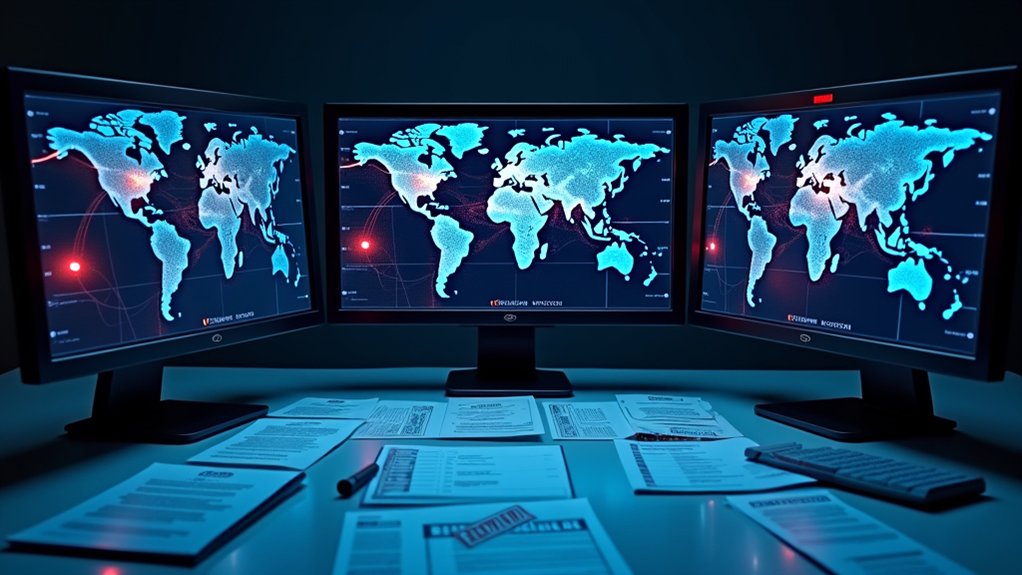As tensions escalate across the Taiwan Strait, China and Taiwan have exchanged increasingly sharp accusations over coordinated cyberattacks, with each side denying wrongdoing while pointing to evidence of sophisticated digital warfare campaigns targeting critical infrastructure.
Taiwan categorically denies Chinese allegations of launching cyberattacks against mainland companies, while Beijing blames Taiwan’s military for managing systematic hacking operations across multiple sectors.
Both sides firmly reject cyberattack accusations while pointing fingers at each other’s military-led digital warfare operations.
China claims up to 1,000 military, energy, and government networks were compromised by Taiwan-linked hackers, prompting authorities to issue bounties of 10,000 yuan (US$1,392) for more than 20 suspects.
Guangzhou officials have named particular individuals, including Ning Enwei, allegedly connected to Taiwan’s government, and issued warrants listing national identification numbers.
Beijing clearly accuses Taiwan’s Information, Communications and Electronic Force Command (ICEFCOM) under the Democratic Progressive Party of directing these operations, though ICEFCOM vehemently denies involvement, calling the accusations slanderous.
Taiwan counters these allegations by asserting that Beijing represents the genuine international cyber threat, estimating that daily Chinese cyberattacks doubled to 2.4 million incidents in 2024.
These attacks mainly target Taiwan’s government and telecommunications sectors, with Chinese threat actors like “Earth Ammit” infiltrating supply chains across drone, satellite, heavy industry, software, media, and healthcare sectors.
Taiwan officials dismiss Chinese accusations as fabricated attempts to deflect international criticism.
The cyber conflict reflects broader cross-strait tensions, with China linking these incidents to Taiwan’s alleged independence drive.
Beijing claims the United States trained Taiwanese personnel and coordinated attacks as part of coordinated cyber and cognitive warfare operations.
Taiwan dismisses these assertions as components of an extensive Chinese disinformation campaign designed to undermine its credibility.
International observers, including foreign governments and cybersecurity researchers, mainly accuse China of conducting cyberattacks against Taiwan, pointing to incidents like the Salt Typhoon hack in the United States.
The escalating digital warfare between China and Taiwan mirrors increased military and gray zone tensions, representing a microcosm of global digital cold war dynamics that continue to destabilize international cybersecurity frameworks. China employs these cyber tactics to pressure Taiwan without resorting to military intervention, aiming to weaken morale and gather intelligence for potential invasion scenarios. The evolution of cyber warfare is now considered integral to modern military strategy as nations increasingly rely on information and communication technology in conflicts.









